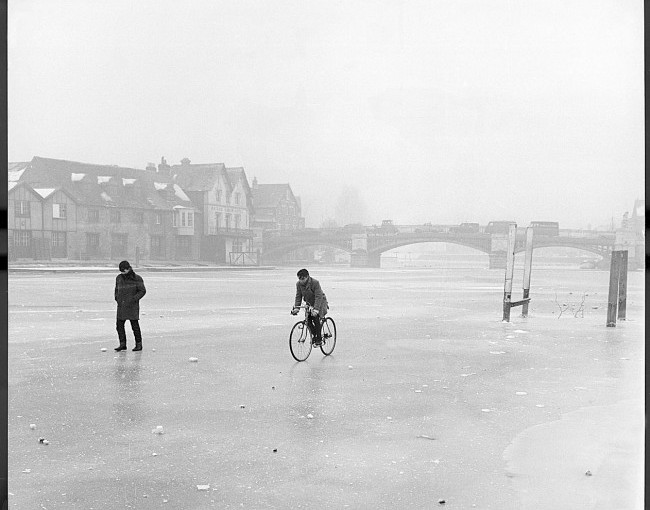I’m thinking of launching a new range of badges. Something along the lines of ‘Broken Heart on Board.’ You know a bit like those ‘Baby on Board’ badges that you can get on the Underground in London if you are pregnant. These aren’t anything to do with a failed subscription to an internet dating site. These are for people who have had heart attacks and to the outside world look just like anyone else. But they aren’t. They really aren’t.
“Yes, I know I don’t look like I have.”
“But I have. Honestly.”
“Yes, I know I don’t seem old enough.”
“No, I’ve never smoked.”
“You are right, I’m not that fat.”
“Yes, thank you. I will let you know if I need any help.”
And so the conversation goes. Time and again. Time and again.
I’m not sure how I am meant to look. I’m not sure what people expect to see. I’m not sure how people expect me to behave.
I’ve had a heart attack, I’ve got no visible physical scars. I still have all of my limbs. I can still talk coherently, I can stand and walk without too many issues and do it all unaided. And I can see, with my glasses anyway. No one walking past me in the street would be able to tell that just over two months ago I had major invasive surgery because the most important organ in my body decided one day that it wasn’t going to work like it was supposed to.
And so the first time I see people after the attack, I sometimes think they can’t really comprehend what has happened. It’s as if the lack of anything visible, anything other than a bloody big pile of pill boxes in the corner of the kitchen, means that it is harder to process for them. Harder to grasp that there is a piece of drug soaked scaffolding in the middle of my heart that is keeping it going and keeping me alive.
So I’m going to launch a range of badges. That should sort it. And maybe a range of FAQs. Something to hand out to answer all of those questions. You know the type of thing. That’s definitely the answer.
And it won’t just help other people, it will help me. It will act as a grounding point. Because often I need to be grounded. Sometimes I’m as guilty as those around me who can’t comprehend what has happened. Sometimes I just don’t get it. Me. And I’m the guy it has happened to. So if there are days when I don’t get it, then is it any wonder that there are a bunch of other people out there who are equally confused.
It’s simple really. I’ve had an operation and I have something in my heart which is helping me stay alive. But It doesn’t mean I am fixed. It doesn’t mean I am in the clear. It doesn’t mean that it won’t ever happen again. And it doesn’t mean that I can do everything that I used to be able to do before, either physically or mentally. And that is frustrating. Really bloody frustrating. Particularly if you are me.
And some days I need to keep reminding myself of that. I need to give myself a break. Sure, most days I feel better than I have felt in years. I’m fitter than I’ve probably ever been. I eat far better than I think I ever have. I weigh less than I have for some considerable time and I sleep. Boy do I sleep.
But I also tire easily sometimes and my heart can’t really deal with sudden explosive bursts of power. I think I may have to hang up my 100m sprinting spikes, if I had ever bought any in the first place. Yes I can walk, I can walk for miles, but anything that needs a sudden burst of pace or energy that has not been built up to becomes tough. Stretching and lifting are equally difficult on occasions. I’ve never been a bench pressing sort of guy, but if I had there would be days when that would be pretty impossible. I mean it looked hard enough in the old world. Now it’s pretty much out of the question. I suppose everything has its upsides. Beggars can’t be … and all that.
Those are just a couple of examples of the things that I can’t do properly any more, but there are plenty of others and getting your head around all of the things that have changed can be a real challenge. When I look at myself I see what others see. I see a guy that on the outside looks pretty good, looks as if he can cope with most things. But now I know he can’t. I’m coming to terms with the fact the world post my heart attack is a completely different beast and just because I look well and I’m not wizened and grey and stooping over a walking frame doesn’t mean that I am fixed.
I’ll never be fixed. I can’t be fixed. But I am able to understand now what my body is capable of, both physically and mentally. And you know what? I’m going to accept it. So it’s not what I want it to be. So what? Get a grip man and accept it, life could have been so very different two months ago. I am going to accept that I have had a heart attack, despite what I look like and how old I am. I’m going to cut myself some slack, I’m going to accept this ‘new’ me for what I now am. I am going to believe it.
So does anyone fancy joining me in making some badges? I think they could become a ‘thing.’




